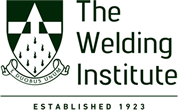- Home
- News / Insights
- Institute News
- The IIW Releases a Statement on Lung Cancer and Arc Welding
Recent Press Releases
|
The Welding Institute Granta Park, Great Abington, Cambridge CB21 6AL, UK
|
TWI Limited, Bevan Braithwaite Building, Granta Park, Great Abington, Cambridge, CB21 6AL Terms Privacy Cookies Accessibility Modern Slavery Statement |
